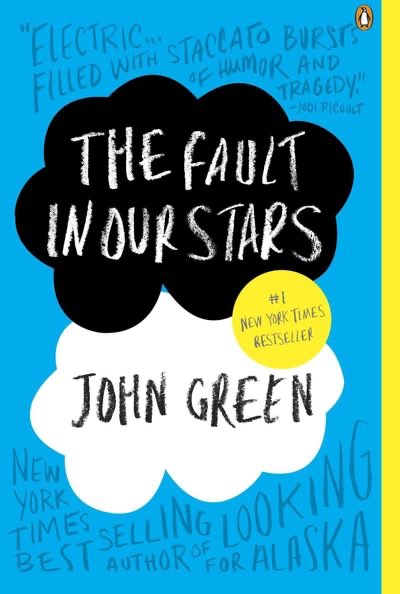
*This review contains light spoilers.
We live in a society in which love seems to lack depth. It seems that the meaning of love is dispersing as time goes by. Nowadays, some people date just for the sake of “dating.” They go to bars and hook up just to feel something, and say “I love you” without meaning it. Many enter relationships not because of genuine emotions but of personal needs they wish to fulfill, whether it be validation, ambition, or distraction. It is like love is slowly resembling fast fashion – becoming something that is cheap, disposable, and mass-produced. Rarely do we think about what love truly means to us. The Fault in Our Stars by John Green is a book that might make modern readers reconsider the meaning of love and what real love looks like.
16-year-old Hazel Grace Lancaster has thyroid cancer. Her time is limited, and she knows it. She has depression and is initially pessimistic, seeming to rather exist rather than live. Her life changes when she meets Augustus Waters at her cancer patient support group.
Augustus “Gus” Waters is a boy in remission after losing his leg due to osteosarcoma. His wit and optimism contrast Hazel’s realism, yet he is drawn to her from the beginning. He fears oblivion and aspires to leave a mark on the world. That is, until he meets Hazel and decides maybe loving someone deeply is more precious than being remembered by millions.
Despite them both knowing Hazel’s time is limited, they fall deeply in love with each other. Augustus uses his Wish(*referring to the Genie foundation that grants one wish for children with critical illnesses) in order for Hazel to meet her favorite author, Peter Van Houten, in Amsterdam. Although the trip does not go as expected, this strengthens the connection between Hazel and Augustus, with them learning how even imperfect moments can hold great meaning.
Neither Hazel nor Augustus are people that would be considered “perfect” in today’s society. Their love story is not “perfect,” either – it is not one of those fairytale-like stories on YouTube or staged reels on Instagram. The love between them is something shy and awkward. It’s made of oxygen tubes, unlit cigarettes, and Venn diagram love letters. It's full of witty humor, philosophical questions, and genuine care. It is odd and seemingly trivial, and that is what makes it natural, tragically beautiful, and so deeply true.
This is what makes this novel truly stand out. It is a stark contrast against today’s society, where love is goal-oriented, transactional, and shallow. Hazel and Augustus remind us that even love that seems small and unremarkable is capable of something profoundly sacred. Even in the face of suffering, love can bloom quietly and beautifully.
The Fault in Our Stars does not glorify pain or cheapen love. It shows us what pain and love in their truest forms can look like. Limited time does not necessarily mean limited love. Love is fragile, flawed, imperfect, and infinite.
“You gave me a forever within the numbered days.”
“You don’t get to choose if you get hurt in this world, old man, but you do have some say in who hurts you. I like my choices. I hope she likes hers.”
In the end, The Fault in Our Stars isn’t a typical romance book. It provokes readers to rethink what love means and reevaluate their perspective in a world that rushes past meaning. It just might be what today’s society needs to hear.


